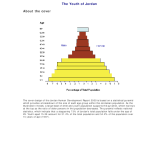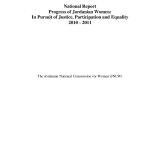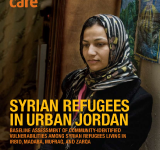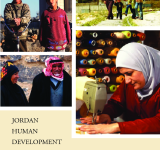This first Jordanian National Human Development Report focuses on the condition and role of young people in the country;; arguing that the capacity of young Jordanians to contribute to national development and to compete in the global economy will determine whether Jordan remains a low middle income country or joins the ranks of the world's advanced economies. The Report looks at young people's lives and aspirations in the three key areas of education;; employment and social integration;; finding for example that 60% of all unemployed people are below that age of 25. The Report concludes that although Jordan has made significant advances in building people's capabilities;; there is room for improvement in aspects of gender-equality;; employment;; income and quality and relevance of education;; and ends with a substantial section on policy recommendations suggesting strategies for addressing this shortfall



